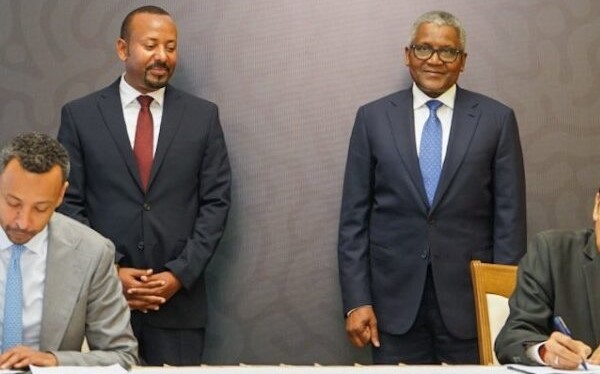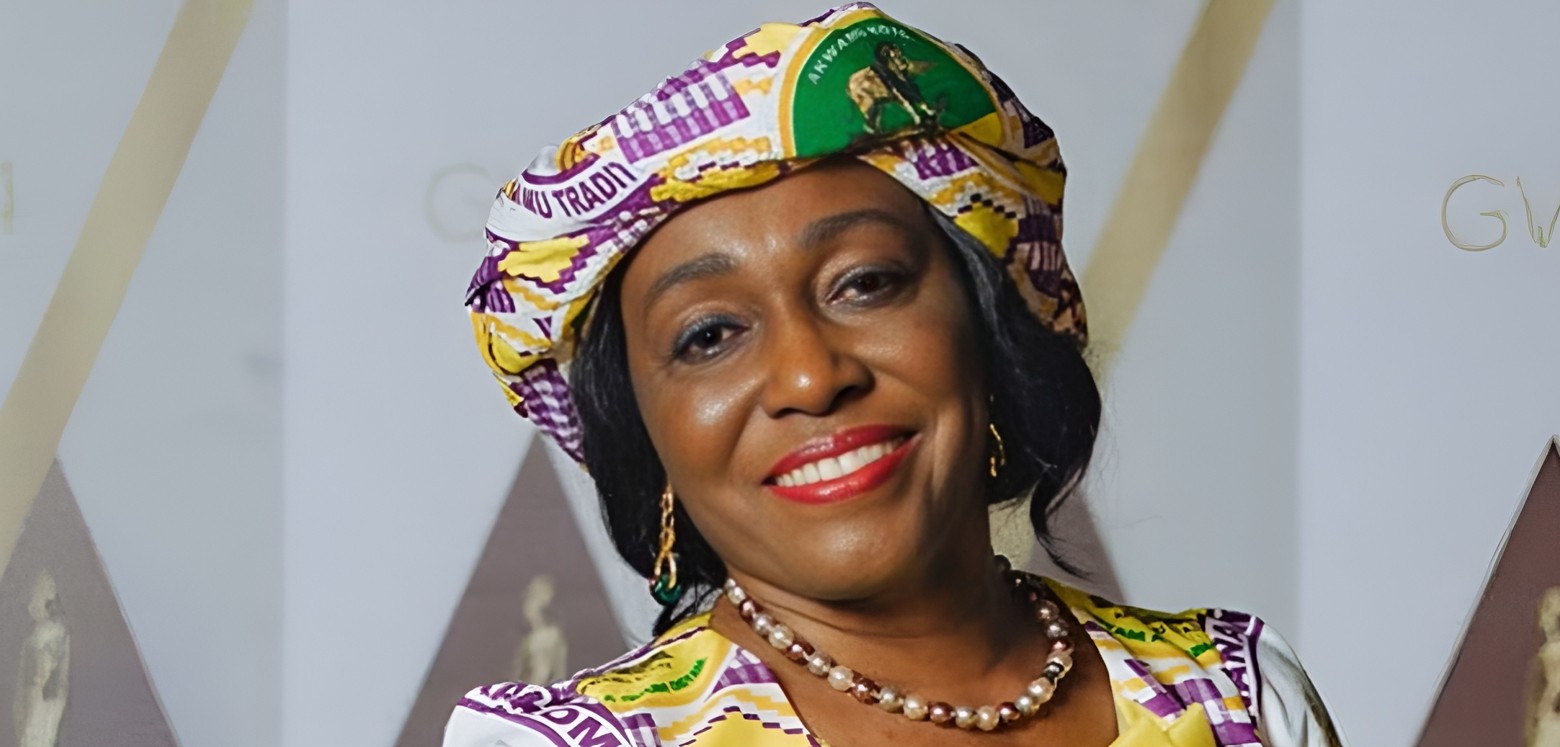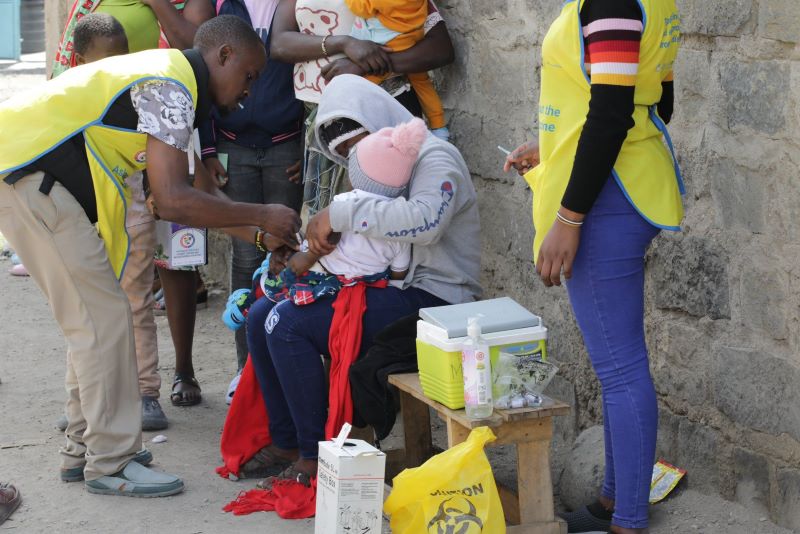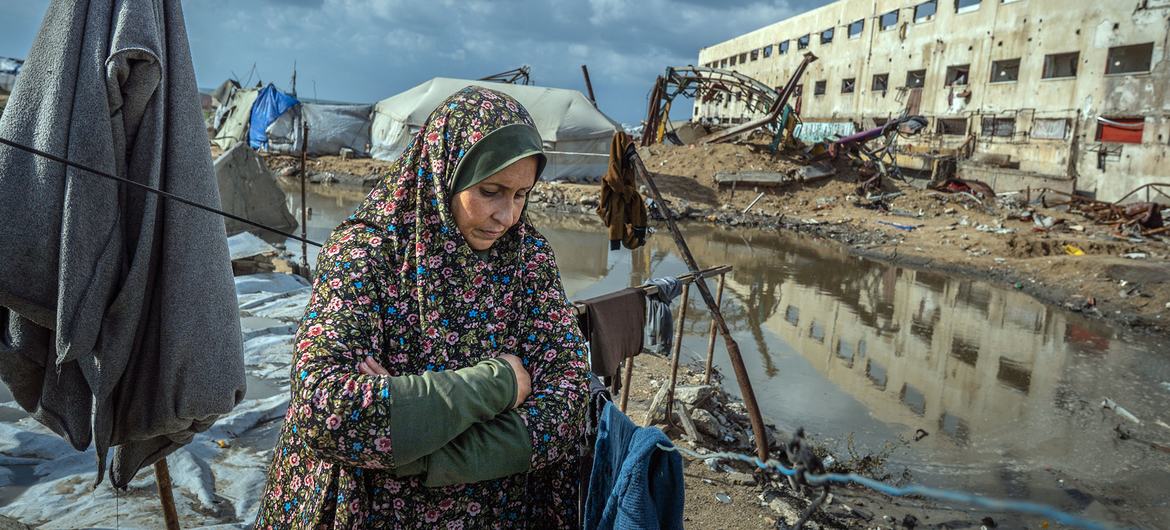Ethiopia, Dangote Group ink Sh323 billion deal to build fertiliser complex in Somali region

Agriculture, which employs more than 70 per cent of Ethiopia’s population, is expected to benefit directly from the project through better access to fertiliser at competitive prices.
Ethiopia has entered a $2.5 billion (Sh323.1 billion) partnership with Nigeria’s Dangote Group to build a large-scale fertiliser complex in Gode, Somali Regional State. The project is expected to transform the country’s agricultural sector and strengthen food security.
The agreement, signed on Thursday between state-owned Ethiopian Investment Holdings (EIH) and Dangote Group, gives the Nigerian conglomerate a 60 per cent equity stake, while EIH retains 40 per cent.
More To Read
- Faith under fire: How social media fuels rising attacks on religions, followers in Ethiopia
- Daua Dam, irrigation masterplan gain momentum after high-level talks in Nairobi
- Kenya steps up border checks as Ethiopia confirms outbreak of Marburg Virus Disease
- Technology of freedom, risk of violence: Digital divide facing women in post-war Tigray
- Cultural victory as Ethiopia recovers 12 artefacts taken to Germany in the 1920s
- ONLF accuses Ethiopia of breaching 2018 peace deal as Somali Region tensions rise
With a planned annual production capacity of three million metric tons of urea, the facility will rank among the world’s five largest urea fertiliser complexes and will be the largest in Ethiopia’s history.
The deal, witnessed by Prime Minister Abiy Ahmed and Dangote Group Chairman Aliko Dangote, covers the construction of fertiliser plants and supporting infrastructure, including a pipeline to transport natural gas from the Calub and Hilala gas fields.
It also provides for potential expansion into ammonia-based fertilisers such as ammonium nitrate, ammonium sulfate, and calcium ammonium nitrate.
Natural gas reserves
Aliko Dangote described the partnership as “a pivotal moment in our shared vision to industrialise Africa and achieve food security.” He added that Ethiopia’s location and natural gas reserves make Gode “an ideal site for one of the world’s largest fertiliser complexes.”
EIH’s Brook Taye called the agreement a major milestone in Ethiopia’s push for industrial self-sufficiency and agricultural modernisation. He emphasised that tapping the country’s gas resources would ensure “energy security and cost competitiveness for decades to come.”
Prime Minister Abiy Ahmed said the project would create jobs, strengthen the fertiliser supply chain, and support farmers who have long faced shortages.
“This is a decisive step in our path to food sovereignty. It strengthens Ethiopia’s competitiveness across the continent and reflects our commitment to executing strategic investments that serve our people and our future,” he said.
Abiy first announced plans for the fertiliser factory during a parliamentary session on July 3, 2025, noting that the facility would be operational after 40 months of development. He stressed that “the agricultural sector will only be complete and effective when there is a local fertiliser factory.”
The announcement follows a broader agreement reached last week with Dangote Industries to establish large-scale fertiliser production in the Somali Regional State, expanding Dangote’s footprint in Ethiopia, where it already operates a cement plant. For EIH, the deal builds on its growing investment portfolio, following its first international stake in Akobo Minerals.
Agriculture, which employs more than 70 per cent of Ethiopia’s population, is expected to benefit directly from the project through better access to fertiliser at competitive prices.
Improve crop yields
The partners said the factory will improve crop yields, enhance food security, and generate regional economic benefits by exporting fertilisers to neighbouring countries.
Ethiopian farmers have faced worsening shortages of chemical fertilisers, with prices doubling over the past year, threatening harvests. Subsistence farmers have warned of missing planting seasons due to a lack of inputs, raising concerns for livelihoods and national food supplies.
Dangote said on X that the investment reflects a “shared vision to industrialise Africa and achieve food security across the continent,” as part of his company’s wider strategy to reduce Africa’s reliance on imported fertilisers.
Across the continent, dependence on imports remains a major vulnerability. Africa imports over six million metric tons of fertiliser annually, leaving farmers exposed to global supply disruptions.
A 2021 Afreximbank report showed Africa exported $8.9 billion (Sh1.152 trillion) worth of fertiliser that year, more than double the $3.7 billion (Sh479 billion) import bill. Morocco and Egypt accounted for over 70 per cent of exports.
While 15 African countries were net exporters, major agricultural economies, including Ethiopia, Kenya, Zambia, Côte d’Ivoire, and the Democratic Republic of the Congo, remain heavily reliant on imports.
Top Stories Today















































